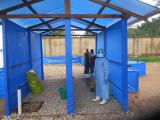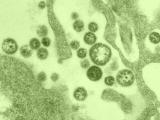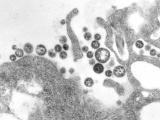Late yesterday afternoon, Iowa's health department announced a fatal imported Lassa fever case.
Today the Centers for Disease Control and Prevention (CDC) posted a statement on the case, emphasizing that the overall risk to the public from this case is very low.
If confirmed, the case in Iowa would be the ninth imported case in the United States since 1969. All US cases have been in travelers, and Iowa authorities reported yesterday that the case-patient had recently been in West Africa.
The patient died while in isolation at the University of Iowa Medical Center earlier this month. The CDC also said the patient was not symptomatic when traveling to Iowa from West Africa, meaning the risk to fellow airline passengers was extremely low.
"The virus is not spread through casual contact, and patients are not believed to be infectious before symptoms begin," the authors wrote.
Patient may have had contact with rodents
Early information suggests the patient may have had contact with rodents while in West Africa, the CDC said. Lassa virus is endemic in West Africa and spread via contact with urine or droppings of infected rodents.
Rarely, the virus can be transmitted person-to-person through direct contact with a sick person's blood or other body fluids, through mucous membranes, or through sexual contact, the CDC said.
CDC is working with state public health officials to identify people who had contact with the patient after the patient's symptoms began.
"CDC is working with state public health officials to identify people who had contact with the patient after the patient's symptoms began. Those identified as close contacts of the patient will be monitored for 21 days," the agency said.
Each year 100,000 to 300,000 cases of Lassa fever, and 5,000 deaths related to Lassa fever, occur in West Africa. In July, an expert group led by the University of Minnesota's Center for Infectious Disease Research and Policy (CIDRAP) raised concerns about the slow pace of treatments and vaccines for Lassa virus and published a roadmap to address the growing threat.




















